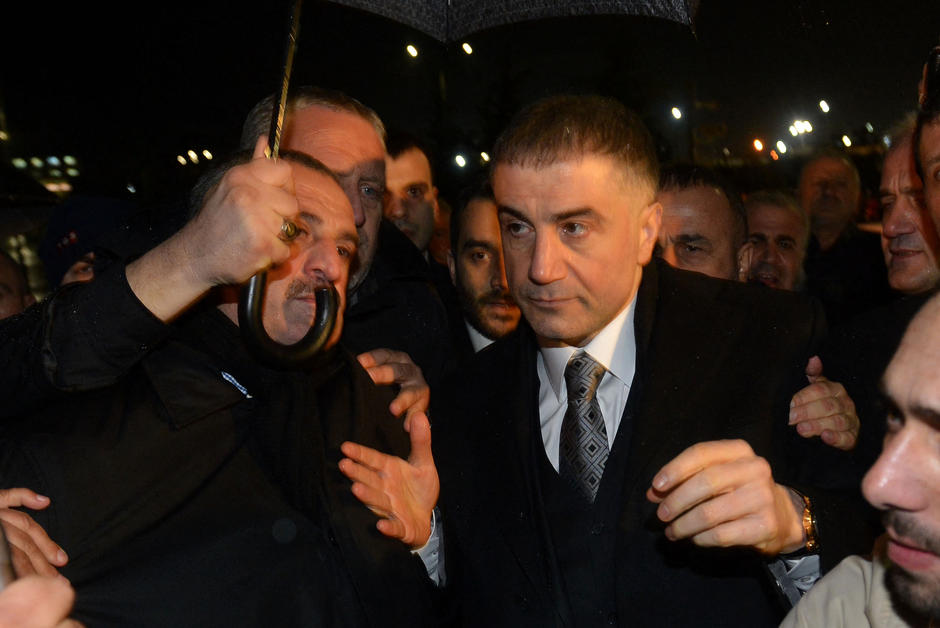Mafia boss Sedat Peker’s latest revelations on the unsolved murder of a Turkish Cypriot journalist, in which he claimed the killing was ordered by a senior agent of Turkey’s National Intelligence Organization (MİT), have prompted outrage in the Turkish Republic of Northern Cyprus (KKTC).
The Republican Turks Party (CTP), the main opposition in the KKTC, urged law enforcement to re-launch the investigation into the killing of journalist Kutlu Adalı in 1996.
“The Kutlu Adalı case, a political murder, has inflicted deep wounds in Turkish Cypriot society. Ensuring security and peace depends on solving this case and other political murders with resolve,” the CTP said on Sunday.
In the latest video released on Sunday, Peker, a mobster who fled abroad, alleges the murder of Adalı had been ordered by Korkut Eken, a former lieutenant colonel and a senior official at the National Intelligence Organization (MIT). Peker claims that former interior minister Mehmet Ağar was also involved in the murder, hiring his brother Atilla Peker to assassinate Adalı.
He said Eken told him later that “another team” had carried out the murder of the journalist.
Following Peker’s claims, his brother was detained by the organized crime police at a rented house in the Aegean province of Muğla.
Adalı, who worked for the left-wing Yeni Düzen newspaper in Nicosia and wrote on corruption allegations about Turkish authorities, was shot dead in front of his home in 1996. His killers have never been identified.
The Turkish Cypriot Journalists Association (KTGB) also called on the authorities to find the perpetrators of the Adalı murder.
“Anybody who cares about human rights and democracy should pressure the authorities to see results in the Adalı murder,” the KTGB said on Monday.
Kudret Özersay, chairman of the Turkish Cypriot People’s Party (HP), said the perpetrators of Adalı’s murder should be brought to justice to erase the “black stain” left by the unsolved case.
Nicosia Mayor Mehmet Harmancı labeled Peker’s claims “blood-chilling” in a tweet on Sunday.
Fikri Sağlar, a former lawmaker from Turkey’s main opposition Republican People’s Party (CHP) who was a member of a parliamentary committee that investigated the Susurluk scandal, which surfaced in the wake of a vehicle collision that occurred in the town of Susurluk in 1996, said the gun used in Adalı’s murder had been brought to the island from Turkey.
In an interview with Turkish Cypriot broadcaster Genç TV, Sağlar said clues led to the Susurluk gang when they were investigating the Adalı murder. He said the parliamentary committee “had brought the investigation to a certain point but was not allowed to proceed.”
Adalı’s wife İlkay Adalı appealed to the European Court of Human Rights (ECtHR) after the investigation in the KKTC failed to solve the case. On March 31, 2005 the rights court ruled that Ankara had not carried out an extensive and credible investigation into the murder and had to pay 96,000 euros in damages.
Before the assassination, Adalı had been working on an armed raid incident that took place at the St. Barnabas Monastery, a museum in Cyprus’s eastern Famagusta province.
In a related article dated March 23, 1996, Adalı alleged that 15 armed men wearing masks were searching for precious jewels that were believed to have been buried under the monastery during the war in 1974.
Adalı wrote that the KKTC’s security forces had been involved in the incident.
Ankara had intervened as a guarantor power in 1974 following a coup aimed at the annexation of Cyprus by Greece. The KKTC came into existence in 1983.
Source:Turkish Minute



